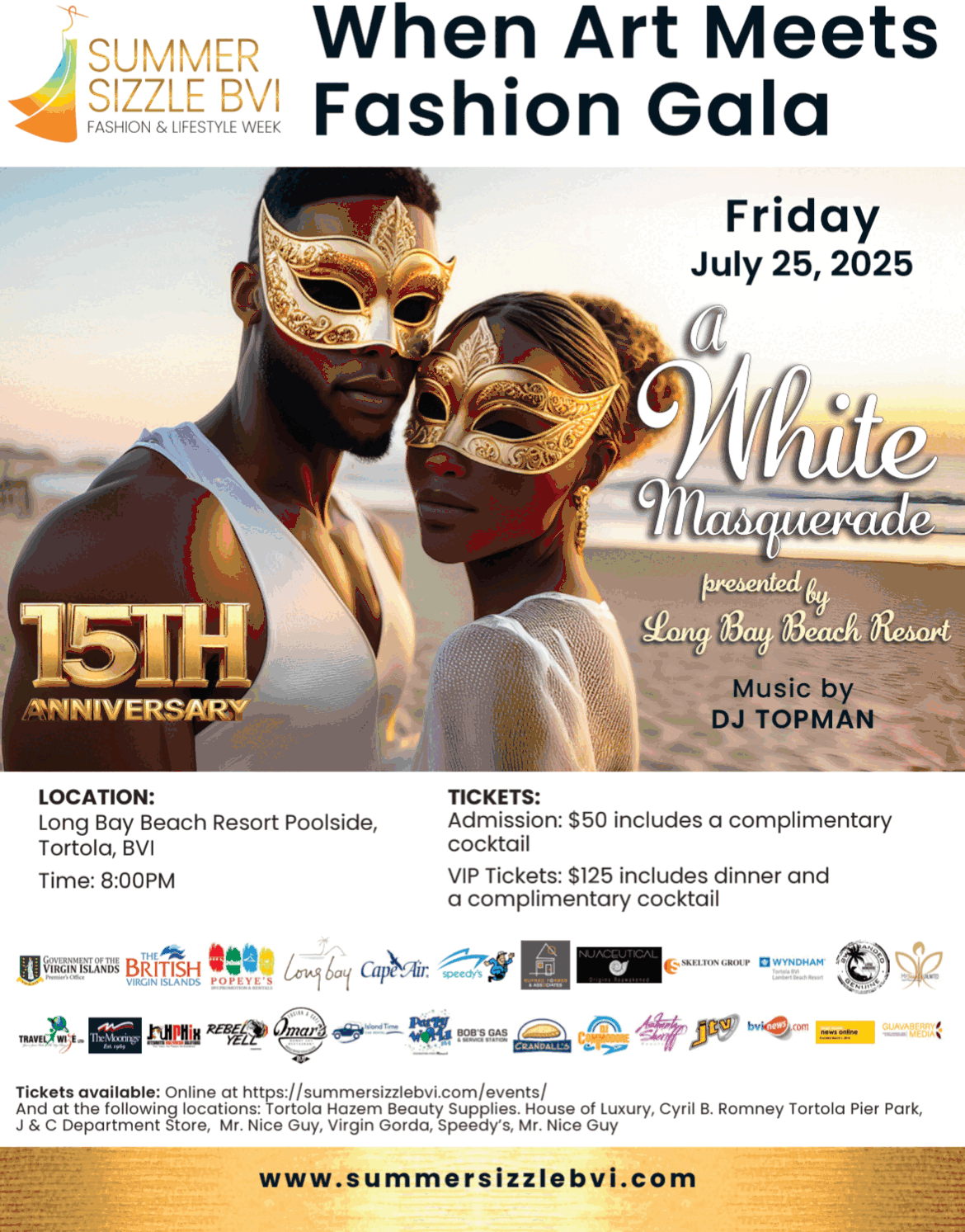Virgin Islands education state, economy & above round rock culture
Spanish explorer Christopher Columbus in 1493, sailing west on the Atlantic Ocean, stumbled upon the Virgin Islands archipelago, renaming them St. Ursula and the 11,000 virgins (Santa Ursula y las Once Mil Virgenes).
Currently, the islands comprise two groups, viz, Virgin Islands (VI) (British) and its friendly, western neighbor, the United States Virgin Islands (USVI). Another presumably interesting group of Virgin Islands is the Spanish Virgin Islands, viz, Culebra and Vieques; they are an integral part of the Commonwealth of Puerto Rico.
Moreover, the VI, to distinguish between it and the USVI, commonly call itself the BVI (British Virgin Islands); the VI is the BVI's legal name. Nonetheless, this commentary will be about the VI (British). The VI is a small, 59 square miles, 36 island chain (15 of which is populated) with a population of approximately 30,000 (approximately 60-70% are expatriates).
The twin pillars of its economy are tourism and financial services; financial services provides an estimated 60% of government revenue; however, tourism generates more direct, indirect, and induced employment. Additionally, it promotes having one of the highest living standards, quality of life, per capita income, and human development index in the Caribbean/West Indies region.
Slavery and Colonialism
Like the rest of its sister regional sister anglophone countries, the institution of slavery, a brutalizing, dehumanizing, exploitative, extractive, slave owners enriching and wealth building, national economic growth agency, etc., is an integral part of VI history. Colonialists introduced slavery in the VI on or around 1655. However, due to some agitation from abolitionists but primarily from its declining profitability, England abolished slavery in its colonies. Emancipation occurred in the VI on August 01, 1834; slave owners delivering the word of their being manumitted given, slaves elated cut loose into a celebration of their freedom. The first Monday, Tuesday, and Wednesday of August are official holidays celebrating emancipation.
Nevertheless, emancipation did not mean that the slaves were free, for they still had to serve four (4) years of free apprenticeship with their former enslavers. Some sources indicate that former slaves provided approximately 45 hours of free labour weekly to former slave masters. In addition to this free labour, under the UK's 1833 Abolition Act (UK borrowed £20M, 40% of its budget at the time, to compensate slave owners, loan paid off in 2015), slave owners received compensation for the supposed loss of their human chattel property. However, to date, neither the slaves nor their descendants have yet to receive a farthing for their free and exploitive labour and sale of family members. Free slave labour built the UK's economy, generate individual wealth, and financed the industrial revolution.
Post-Slavery Economy
A series of events, viz, drop in sugar prices, revolts, hurricanes, etc., hampered the profitability of local plantations. In response and to cut losses, plantation owners sold their land to former slaves and beat feet and took flight out of the colony, supposedly leaving the poverty-stricken place as only good as a bird sanctuary. Nevertheless, a concerning trend is occurring, i.e., gentrification/regentrification of the bird sanctuary is increasing.
Peasant Economy
The collapse of the plantation economy presented challenging economic times for the VI. The VI was neglected and almost forgotten by the UK and Leeward Islands Federation and viewed as a little sleepy hollow, poverty-stricken place, the poor house of the West Indies, etc. Its Legislature was suspended in 1902. Nevertheless, with the land purchased from slave owners, slaves and their descendants developed a peasant economy, performing subsistence agriculture, cattle and small stock rearing, etc. In addition to subsistence agriculture, Virgin Islanders engaged in fishing, sailing, coal burning, etc. Further, they also emigrated to Cuba, Dominican Republic (Santo Domingo), Puerto Rico, Aruba, and USVI for employment. Remittances were a part of family(s) income.
Education
During slavery, the slave owners had little interest in teaching slaves how to read and write. This action was a deliberate act by slave masters, for if slaves were kept illiterate, they were easier to control. It was illegal, a cardinal sin, in some locales, to teach slaves how to read and write. There was a cost to teaching a slave(s) reading, writing, and arithmetic. Literate slaves were of little to no value to slave masters. A slave value was producing agricultural commodities and being a valuable asset on the auction block. Pulitzer prize winner Nikole Hannah-Jones in The 1619 Project, which is an uncomfortable read for many people, wrote, "But newly freed Black people, who had been prohibited from learning to read and write during slavery, were desperate for an education, which they saw as integral to true liberty." Virgin Islanders, too, viewed being educated as true liberty.
However, education from the onset has always been a challenge for Virgin Islanders. The Anglican and Methodist churches were instrumental in initially teaching Virgin Islanders how to read and write and do arithmetic, much to the chagrin of the colonialists. Primary education introduced; Virgin Islanders yearned for access to secondary education plus.
The VI was an agricultural society and lagged behind its sister regional countries to access secondary education. Neither the UK government nor the Federal government of the Leeward Islands Federation viewed it as a top priority. The VI was the last of Leeward Islands Federation presidencies to gain access to secondary education. Further, the VI lack of a market economy dampened the enthusiasm somewhat for secondary education. Nevertheless, after relentless Virgin Islanders agitation, a small secondary school (Virgin Islands High School) was opened in 1943. The school only accepted 25 new students annually; selection to attend the school was highly targeted and very selective. The majority of slots were reserved for the children of the elite class, and selection was not always merit-based. Education progress grew little during the late 19th Century and early part of the 20th Century. Most of the gain was noted after the Great March of November 24, 1949, the reinstating of the Legislature in 1950, and the rollout of a new constitution in 1950. The need for secondary education became a uniting elixir for a cross-section of Virgin Islanders.
Moreover, with the rollout of the BVI High School (now Elmore Stoutt High School) on Tortola in 1968, every eligible VI student now has reasonable access to secondary education. Other public secondary schools in the territory include Bregado Fax Educational Centre, Virgin Gorda; Claudia Creque Educational Centre, Anegada. Virgin Islands residents now have tertiary education opportunity(s): H. L. Stout Community College. This is an improvement and progress, for all Virgin Islanders didn't always have the opportunity and easy access to education, i.e., children from the Southern Cays. Additionally, in the 50s, government assume full responsibility for public education; a major Public Education Act enacted in 1955.
Economic Transition
Post slavery, the VI, resource-poor, had a primary subsistence agricultural economy, i.e., agricultural production, coal burning, fishing, cattle, and small stock rearing, etc. It was relatively self-sufficient (organic) with food security; it exported food surplus to the USVI. Today, it imports over 70% of its food (high in calories, fat, sugar, and sodium) and is food insecure. Moreover, in the mid-60s, the VI started transitioning from subsistence agriculture to tourism. Financial Services in the 1980s joined tourism as the twin pillars and the mainstay of the service economy. The twin pillars of the economy improved the quality of life and standard of living, i.e., education, healthcare, utilities, infrastructure, telecommunications, housing, leisure and recreation, material abundance, etc. The improved economy provided more job opportunities, more job titles, and increased demand for labour. An improved economy, albeit fragile, created an explosion of job opportunities; this explosion, coupled with a small local population, pushed the need to import skilled and unskilled labour. Further, universally, as is the case in the VI and as the standard of living and quality of life in a 'community' improve, locals transition from performing specific jobs, necessitating importing labour.
Human Capital Investment
Human capital is the most crucial factor in economic growth and development. Despite the VI claim of having one of the highest living standards, quality of life, and per capita income in the region, it is resource-poor, and human capital is its prime resource. Consequently, it must be adequately and efficiently invested in and on human capital. Effective education is a crucial investment in human capital. Nevertheless, the improved economy with new job opportunities and new job skills did not provide the effective and practical education and training to meet the new labour needs. Locals were/are concentrated in the public sector and in administrative jobs, while expatriates are concentrated in the construction skills area and other technical areas. This lack of practical education is evident by importing labour to fill key positions that Virgin Islanders have the talent and skill to perform but may lack the training and education.
Moreover, some improvements have been made in education; a few Virgin Islanders are competing and doing well, holding their own locally and internationally. Nevertheless, the educational rate/level of the many have not yet reached a desired critical mass. Consequently, a new economic and educational approach is needed.
Economic Diversification and Education
The VI (British) is a resource-poor, small locale that is remotely located from major markets with a small population (~30,000), a fragile service economy (tourism and financial services), and with many of the same challenges of Small Island Developing States (SIDS). Its primary resource is human capital, and its primary economy is the tourism and financial services twin pillars, two fragile economic sectors. To build resiliency and sustainability into its economy, the VI has to diversify its economy.
Two critical tools in diversifying its economy are education and technology. To leverage education and technology to diversify the economy, I suggest the following actions; the suggestions are not in priority order: a)commission and conduct an urgent comprehensive education assessment, b)develop, codify (House of Assembly approved), and implement an education master plan, c)commission an education improvement ad hoc committee, d)establish a school board, e)embrace an education Iron Triangle (Ministry of Education, School Board, Public) tool, f)invest in the physical infrastructure to support education, g)mandate a minimum of 12 years of education for VI students, h)launch a strong STEM (Science Technology Engineering Mathematics) programme, i)benchmark the educational success of other small locales, i.e., Singapore, j)review teaching methodology, i.e., teaching knowledge and using knowledge, k)introduce shop/craft into primary and secondary schools, l)improve technology school and focus heavily on IT (Information Technology), and m)devise plans and programmes to incentivize locals to join the teaching profession. Further, Dr. Charles H. Wheatley, OBE, book, Voices, and Visions of Education Heroes, Leaders, and Elders--- A History of Education in the British Virgin Islands is a viable blueprint/source on past education initiatives and the way forward.
Moreover, education is foundational and crucial to the VI's future economic growth, development, sustainability, and resiliency of the territory. It should be the top national priority behind health. The VI must aim to become a healthy and well-educated territory. Its vision and mission should be at the top or near the top in educational attainment. Further, education is too critical to be a partisan political football, receive lip service, etc. The electorate must deploy its true power to ensure that it is a non-partisan issue and a top national issue.
Above Round Rock Mentality
Many VI residents may not be familiar with the phrase "Above Round Rock." Dr. Charles H. Wheatley, OBE, the preeminent VI educator, in his latest must-read book, Heritage & Hope Finding My Purpose in Virgin Islands Culture 1938-1963, provides some insight into the phrase: "Round Rock was the last island in the British Virgin Islands archipelago that the boats passed on their way to the more southerly Leeward Islands. It referred to the last visible sight of the boat as it sailed beyond the horizon into the Caribbean Sea. Round Rock was, and still is, for people of Carlos' generation –those born during World War II and before—the dividing line between the cultures of the British Virgin Islands and the Leeward Islands. Round Rock had also become a symbol of division between the better-educated people from the Leeward Islands and the less-educated people of the British Virgin Islands. During the first half of the last Century, most senior civil servants and senior teachers, including principals, came from the Leeward Islands. Over time, the phrase "above Round Rock "signified superiority. Anyone or anything from "above Round Rock" was accepted without question." By the way, it is a myth that one's intellectual capacity is a measure of his/her home island size.
Moreover, the "above Round Rock" attitude and behaviour, along with crab-in-the-bucket self-hatred (that was slave-era conditioning) and the only I can be King/Queen of the community, still exists. It is time to can the envy, greed, jealousy, and bad-mindedness. Back in the day, when most people were at the same economic level and when the community raised a child, "each one help one." It is time to shed the attitude and behaviour and work cooperatively and collaboratively to build and grow the VI. All Virgin Islanders must support and demonstrate confidence in the talent, skill, knowledge, and ability of other Virgin Islanders, albeit not blindly. Constructive criticism is above the line. Let's used the deep talent reservoir of Virgin Islanders to help move the VI forward.
For example, Dr. Charles H. Wheatley, OBE, is the preeminent educator in the VI. He served as a pupil-teacher, parent, principal, chief education officer, permanent secretary, and President of H.L. Stout Community College. The only education position he has not served in is the minister of education. President Emeritus Charles H. Wheatley and Jennie Wheatley, an educator and cultural icon, are a dynamic duo in education who are still on the education battlefield and are willing and ready to share their wealth of knowledge and experience, cleanly passing the education baton to the next generation(s) to continue the education race/journey. Education is a continuous race. Additionally, other local senior educators are also on the education battlefield and are ready to share their knowledge and experience.
Finally, Dr. Wheatley has contributed immensely to the growth of education in the VI. The VI should give him his flowers while he is here to cherish them. VI, recognize and reward him for his sterling effort and immeasurable contribution, i.e., name a facility, street, etc., in his honour. Dr. Wheatley is too humble and professional to agitate for or even talk about such honour(s). The preceding is my rant.
Edgar Leonard is a native Virgin Islander, an amateur freelance writer, and a Florida A & M University, graduate.







.png)











.png)











.jpg)








21 Responses to “Virgin Islands education state, economy & above round rock culture”
[let’s lead as eagles, not careen off the cliff like buffaloes]
The White descendants of slave masters like to wax and rationalize that they have not owned any slaves nor did no one alive today own any slaves and that they should not be burdened with the sins of their forefathers. However, what they pretend and conveniently want to forget are that they benefited immensely and continue to benefit tremendously from the spoils of slavery. Can they deny this? No.
Nevertheless, the only people that have not benefited from the fruits of slave labor are Slaves (producers) and their Descendants. Slave Descendants need to be made somewhat whole; the brutality, dehumanizing, exploitation, subjugation, demoralizing, etc, can never be made fully whole. Sir Hilary M. Beckles, chancellor of UWI and lead person on Caricom Commission on Reparation need to ramp up the effort on reparation. Dr. Beckles is the leader of the commission but the whole region needs to actively weigh in. Indeed, the UK, US, France, Spain, Holland, Portugal, Denmark, etc, owe Caribbean/West Indies Slaves descendants a huge debt. It is way past time they pay up. Reparation is not new, for other brutalized and dehumanized people have received reparation, ie, Jews, Japanese, etc.